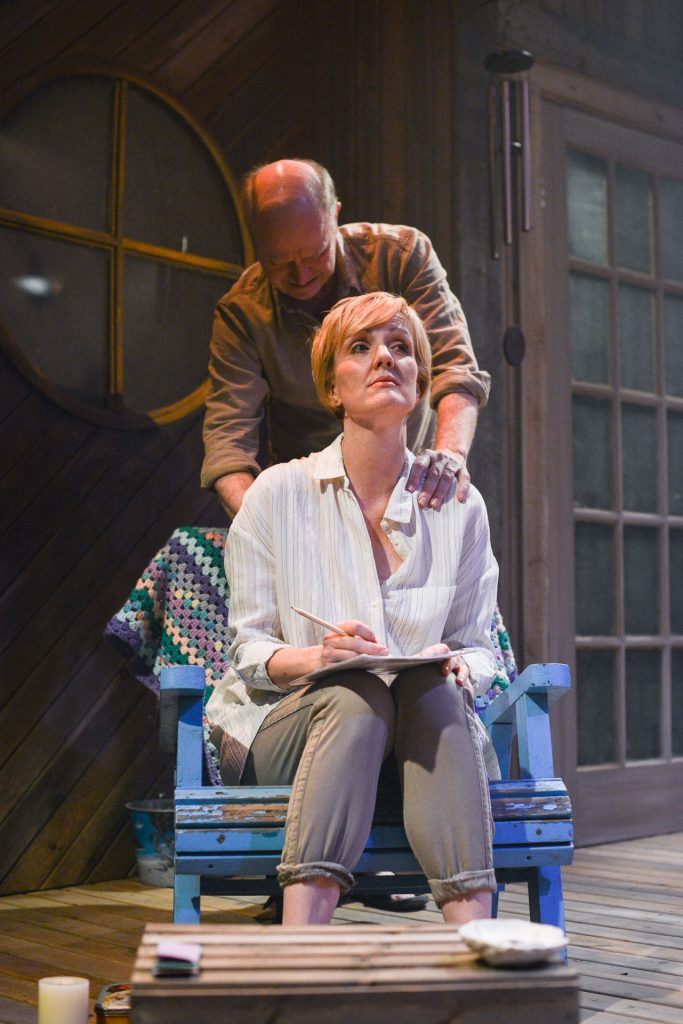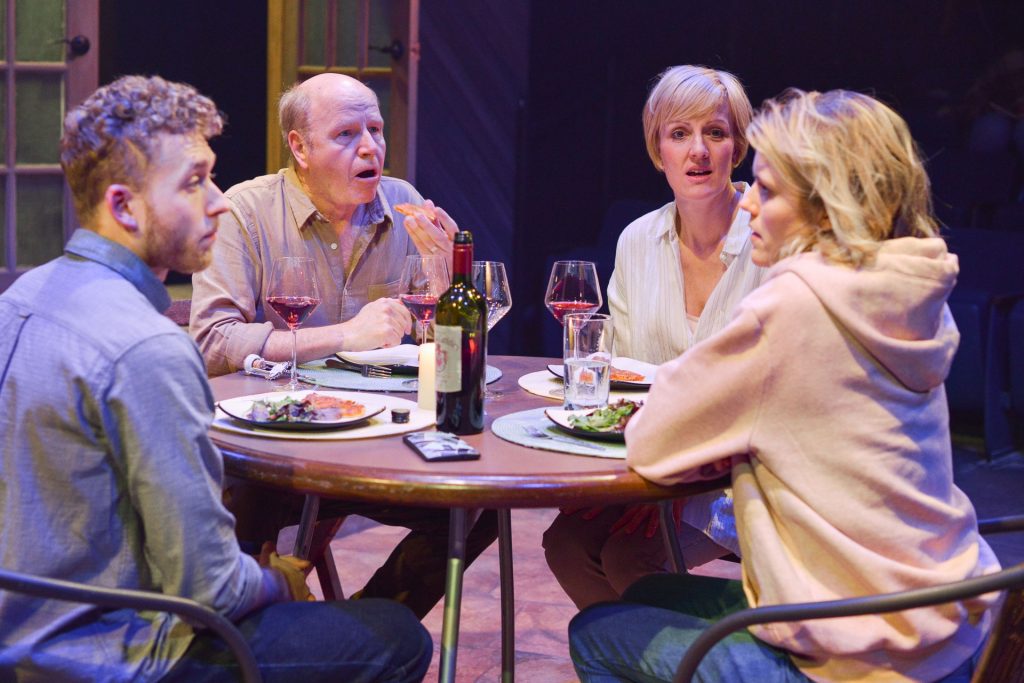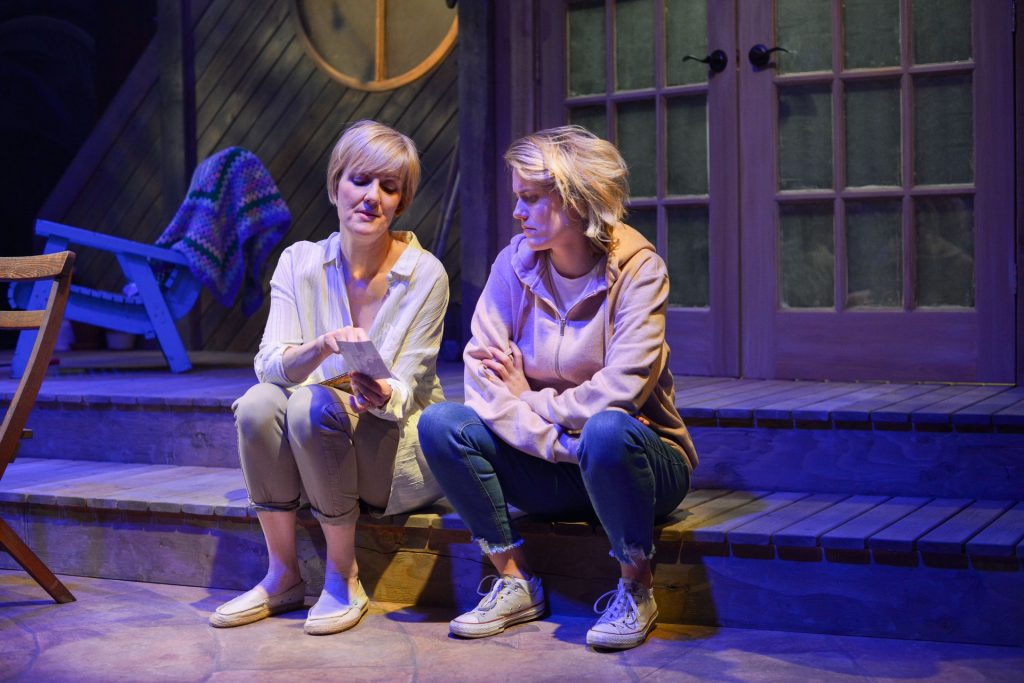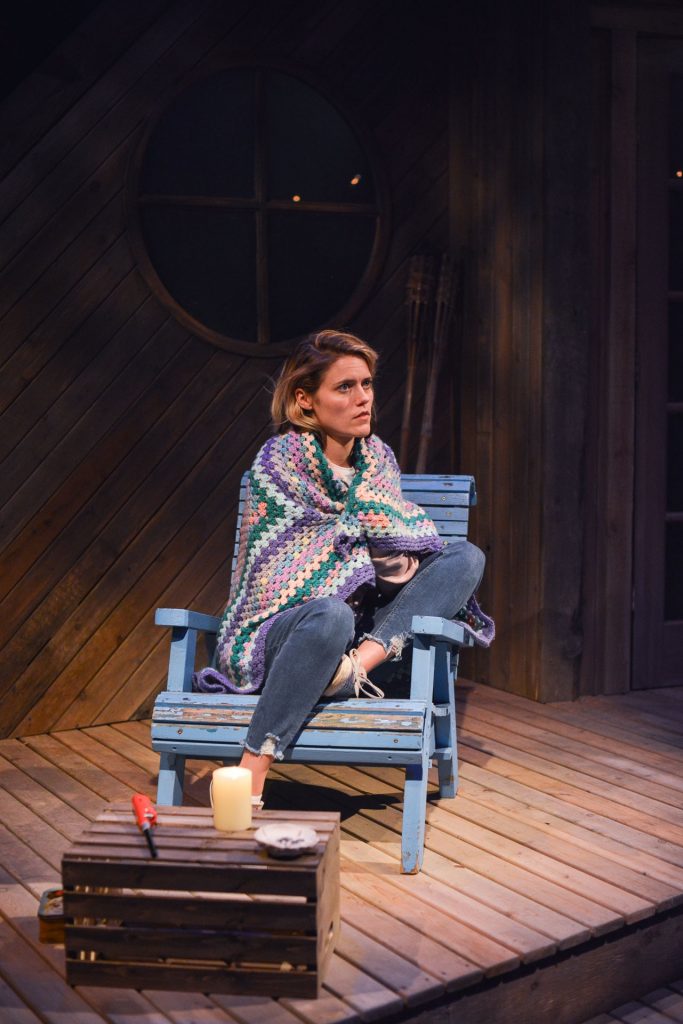
Credit: Jalen Laine Photography
Pacific Theatre until March 23, 2019
Tickets from $20 at pacifictheatre.org or 604-731-5518
Posted March 2, 2019
Thank god for mothers like Susan Campbell in Peter Boychuk’s new play, Jesus Freak. And thank goodness for actors like Katharine Venour who brings this one to life on the stage. We can also thank Pacific Theatre, a faith-based company, for daring to commission Boychuk to write a play about the stigma attached to Christians. Jesus freak: it’s a derogatory term we still hear.
In his program notes, Boychuk says he wanted to write a play “where’s there’s lots of conflict but everyone loves each other.” The conflict in Jesus Freak is an ideological difference within a family. Alan (Ron Reed), the father, is a scientist and believes only in what can be proven. “I believe in science and logic.” He’s cool, he wears sandals, drinks kale smoothies and smokes dope. He prides himself on being liberal and he’s fine with late teens-early twenties son Nate (Brandon Bate) being gay. Katharine Venour is Susan, mother to Nate and Clara (Kaitlin Williams), and a recent breast cancer survivor. When twenty-something Clara arrives from Montreal where she is a graduate student in political science and tells them she has become a Christian, shock waves threaten to ruin what Susan planned to be a happy family reunion on Saltspring Island.

Credit: Jalen Laine Photography
Ironically, it’s Easter, that most secularized of the Christian holidays.
From the breezy cottage-y set design (Brian Ball) with its turquoise Adirondack patio chair, weathered wood and painted backdrop of Emily Carr-ish evergreens, to Boychuk’s dialogue, Jesus Freak is based in reality. The arguments thrown at Clara by her father and brother are the common arguments; we’ve heard them all before. Clara, they say, has been “indoctrinated” , drawn into a “cult”; she will be made to feel “guilty” about personal choices she has made in the past; she’s part of a “hate group” that’s intolerant of the LGBTQ community; she has become “wilfully ignorant.” “They don’t give a shit about you,” says her father angrily.
So, thank god for mothers like Susan, the sole member of the family who puts the happiness of Clara before her own misgivings. Williams’ Clara is absolutely transparent in her unhappiness and vulnerability. What Clara needs is the love and support of her family and the only one who understands that is her mother. Venour always brings such maturity, calm and stillness to the stage and these qualities are exactly what define Susan. Alan and Nate, on the other hand, look like a pair of adolescents.

Credit: Jalen Laine Photography
And that is where Jesus Freak wobbles a little. Alan appears unbelievably insensitive and completely incapable of seeing that Clara, whom he dearly loves, is hurt by his mockery. So intense is his criticism that one wonders how Susan appears to have been happily married to him for so long.
And one would think that Nate, who has been the beneficiary of his parents’ liberalism, would cut Clara a little slack.
Under Morris Ertman’s direction, Jesus Freak reaches a pitch and stays there for a little too long. The arguments become repetitive and it takes a long time for Susan to put a stop to it.
And it’s a bit simplistic – like covering his authorial butt – the way the playwright reveals the motivation behind Alan and Nate’s hostility to Clara’s conversion; some, but not all, of Nate’s motivation is rooted in sibling rivalry.

Credit: Jalen Laine Photography
But it’s a courageous little play that dares to take on all the commonplace assumptions and misconceptions. “They” do this and “they” do that is a frequent accusation. Yes, some of “them” do this or that but that will not be Clara’s way and her family must trust her to find her own way.
It does seem strange that, as a society, we can be so inclusive and tolerant about a lot of things yet so harsh and condemning of others. We accept, by and large, that someone is a Buddhist or a Muslim, but maybe not a Christian. It’s a brave Christian theatre company that tackles this one head on.

